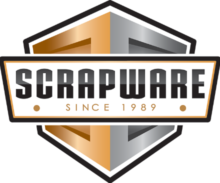Demand for aluminum cans is continuing its upward trend fueled by consumer preferences, sustainability policies, and incorporation of new technologies.
Industry observers cite research that says the aluminum can market is expected to skyrocket over the next ten years. Straits Research in a July 2024 report stated that the global aluminum beverage can market size was valued at $53.9 billion in 2023 but is expected to reach a value of $70.1 billion by 2032. Ball and Crown Holdings, two of the world’s largest can makers, are both forecasting climbing volumes and greater market share at the expense of plastic and glass, according to a Wall Street Journal report this month.
Consumers drive aluminum can usage
The increased consumption of cans is largely due to increasing demand for beverage packaging. Industry experts point to numerous factors driving this trend. First is increasing consumer demand for single-serving, portable drinks. According to the Journal report, companies built up global manufacturing capacity following the pandemic betting that the demand for at-home beverages would continue. At-home drinking decreased, however, after the lockdowns ended and consumers returned to bars and restaurants. In a turnaround, beverage makers are now turning to aluminum as a marketing effort to sell their drinks to consumers.
A rising awareness of the drawbacks of plastic packaging is driving consumer demand for canned beverages as they steer away from single-use plastic. Given the high recyclability rates of aluminum, it is considered an eco-friendlier packaging alternative that many prefer. While glass is also highly recyclable, it is not as convenient for consumer use.
Not all aluminum can use is for beverages. According to Precedence Research, a growing number of ready-to-eat food products are now also packaged in cans. Advances in canned food packaging have led to BPA-free (chemical-free) can linings and are now considered a healthier option that is also more environmentally friendly.
Sustainability policies impact can usage
Both beverage and food companies are pivoting to aluminum packaging because of government sustainability policies. According to the Journal report, Coca-Cola now packages its Dasani water in cans, so that it can be sold in national parks across the country. The U.S. National Park Service has banned the sale of single-use plastic water bottles in the parks. Other brands are looking to promote the fact that they have scaled down their use of plastics. The Park Service is not the only entity to ban single-use plastics. Other municipalities have placed similar bans on single use plastic, pushing drink makers to offer beverage packaging alternatives.
Technology’s impact on can manufacturing
The use of new technology in aluminum and can manufacturing is improving the quality and efficiency of the product. According to industry reports, the use of artificial intelligence in the manufacturing process has led to innovations that surpass traditional options. The innovation with metal is allowing brand owners to use cans as promotional tools. The dramatic increase in the number of single-serving flavored alcoholic beverages, wine, craft beers, soft drinks, energy drinks, and coffees makes aluminum packaging advantageous because it can be used for marketing. Crown Holdings, Ball and other companies are now able to offer a variety of unique shapes, sizes, finishes, textures, and other features to improve shelf visibility and product differentiation. Premium brands are now sold in cans with distinctive shapes and eye-catching graphics to grab consumer attention. There are cans coated with temperature sensitive ink and photochromic finishes that react to UV rays.
In addition to the marketing benefits, the advantages of aluminum for packaging have been recognized for some time. “Aluminum beverage cans are a marvel of sustainability, functionality and modern design,” states the Aluminum Association on its website. The association outlines the metal’s benefits:
- Infinitely recyclable
- Easy to stack
- Lightweight
- Strong
- Efficient to ship and store, enabling brands to transport more beverages using less protective packaging material
- Chills quickly
- Protects flavor and freshness
- Superior metal “canvas” for 360 degree creative and artistic labeling
Recognizing these benefits, many beverage companies like liquor and coffee brands have now extended their product line to include single-serving canned drinks. Ball Corp. now makes cans with a cap, giving them the benefits of a bottle. Ball has also started selling aluminum cups that are as recyclable as cans. The cups are made of 90 percent recycled content and are used at some sports and entertainment venues.
This increased use of aluminum bodes well for the scrap metal recycling industry.
Aluminum is a more valuable material than plastic or glass, helping municipal recycling programs become more financially viable. This helps subsidize the recycling of less valuable materials in the curbside bin. Additionally, aluminum is recycled in a closed loop, to become new cans or other valuable consumer products, not downcycled into less valuable products like carpet fiber.
Despite the value of aluminum and prevalence of recycling, there is still room for improvement. According to an Aluminum Association 2021 report, the U.S. industry recycling rate which includes all aluminum used beverage containers rose to 59.7 percent in 2021 from 55.7 percent in 2019. Industry hopes that with an increase in cans used by consumers, and an increased awareness of the importance of recycling, we can expect recycling rates to increase as well.
About ScrapWare Corporation: Since 1989, Rockville, Maryland-based ScrapWare Corporation has been the software of choice for the recycling industry. Its ease of installation and simplicity saves users time and money while helping them achieve compliance and maintain accurate business insights. With state-of-the-art functionality tailored to each organization’s unique requirements, ScrapWare is an advanced dynamic software solution that alleviates the most pressing recycling industry worries. For more information, please call (301) 517-8500 or visit https://www.scrapware.com/.

